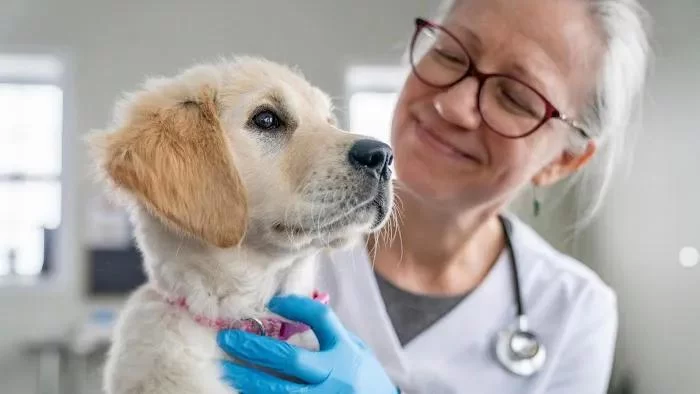Do Veterinary Interns Get Paid? What to Expect in Real Practice
- understanding-the-reality-of-veterinary-intern-compensation
- what-determines-whether-a-vet-internship-is-paid-or-unpaid
- real-stories-from-veterinary-interns-across-the-us
- is-the-low-salary-worth-it-career-value-and-perspective
- how-to-choose-the-right-veterinary-internship-program
- ready-to-pursue-your-path-get-equipped-today
1. Understanding the Reality of Veterinary Intern Compensation
One of the first questions aspiring vets ask is: do veterinary interns get paid? The answer isn't as straightforward as you'd hope. While some veterinary internships do offer compensation, many are low-paying — and some remain entirely unpaid, especially in niche or highly competitive fields.
In the United States, a paid veterinary intern can expect to earn between $25,000 to $40,000 per year, depending on the institution and geographic location. When compared to the average debt most veterinary graduates carry — often well over $150,000 — the salary can feel almost symbolic. Still, these programs remain in high demand.
2. What Determines Whether a Vet Internship Is Paid or Unpaid?
2.1 Type of Facility
Large academic hospitals or corporate-owned specialty practices are more likely to offer structured, paid internships. On the other hand, internships at smaller clinics, rescue centers, or exotic animal facilities may offer little more than hands-on experience and housing.
2.2 Location and Funding
Internships in major urban centers or with better funding tend to offer modest stipends. However, some prestigious internships in competitive fields (e.g., zoo medicine or equine surgery) remain unpaid, banking on their reputation and the value of the experience.
2.3 Accreditation and Program Structure
Accredited internships that follow a structured learning model with mentorship and evaluations are often more likely to be paid. But again, “paid” may not mean "well paid." Interns often work 60+ hours per week, making their hourly wage surprisingly low.
3. Real Stories from Veterinary Interns Across the U.S.
3.1 Kate’s Emergency Room Grind
Kate, a recent graduate from UC Davis, accepted a paid internship at an emergency and critical care center in New York. Her salary was $32,000, but with 80-hour weeks and NYC rent, she relied heavily on side gigs like online tutoring. “I learned so much, but some days I questioned if I could afford to keep going.”
3.2 Marcus’s Wildlife Internship – Passion Over Pay
Marcus landed a competitive internship at a wildlife rehabilitation center in Colorado. It was unpaid, but included shared housing and meals. “I worked 12-hour days, six days a week, but watching a bald eagle fly again made it worth it — even if my bank account didn’t agree,” he said.
3.3 Hannah’s Corporate Track
Hannah accepted a corporate-sponsored internship at a chain animal hospital in Texas. It paid $39,000 with clear pathways to full-time employment. “It felt more stable, and I knew what I was walking into afterward,” she explained. “That kind of security made the lower pay bearable.”
4. Is the Low Salary Worth It? Career Value and Perspective
This is the million-dollar (or maybe $30,000) question: Is it worth it? The answer often depends on your long-term goals. For many, the value of a veterinary internship lies not in the paycheck but in:
- Exposure to specialties that general practice may not offer
- Mentorship from board-certified specialists
- Improved confidence and decision-making skills
- Enhanced chances of matching into residencies or competitive job roles
That said, the emotional and financial strain is real. Intern burnout is a growing concern, especially when compensation fails to match the workload. If you're pursuing an internship, it’s critical to weigh the educational value against the cost of living, relocation expenses, and potential stress.
5. How to Choose the Right Veterinary Internship Program
5.1 Ask the Right Questions
Before accepting any position, ask about the average weekly workload, on-call expectations, mentor involvement, and of course — whether the internship is paid. Sites like the Veterinary Internship & Residency Matching Program (VIRMP) provide transparency, but always reach out to current or past interns for honest feedback.
5.2 Look Beyond Prestige
A well-known name doesn’t always mean a better experience. Some lesser-known programs offer outstanding mentorship and more hands-on opportunities. Focus on finding a place that aligns with your goals, values, and practical needs.
5.3 Consider the Exit Path
Where do interns from this program go afterward? Into residencies? Specialty practices? General clinics? If a program has a strong track record of placing interns into desirable roles, the investment may be worthwhile — even if the pay isn’t impressive.
6. Ready to Pursue Your Path? Get Equipped Today
So, do veterinary interns get paid? Often yes — but not nearly enough. What they gain in experience can be invaluable, but the financial realities shouldn’t be ignored. Whether you're still in vet school or already comparing offers, the key is to make informed decisions.
If you're preparing for your internship journey, now’s the time to plan smart. From compression scrubs designed for 16-hour shifts to professional development resources that help you transition post-internship, everything you need is within reach.
Visit our curated collection at VetGear Pro — where future veterinarians find tools, tips, and essentials tailored to the demands of internship life. Because your passion deserves the right support. Let your journey start not with questions, but with confidence.












